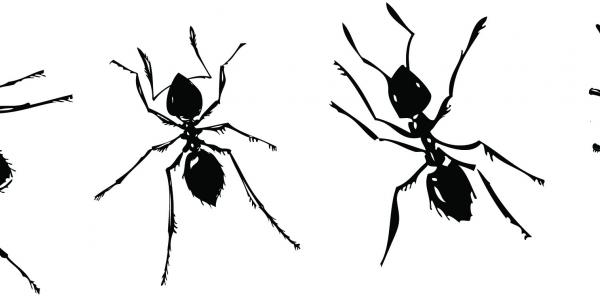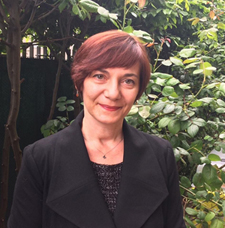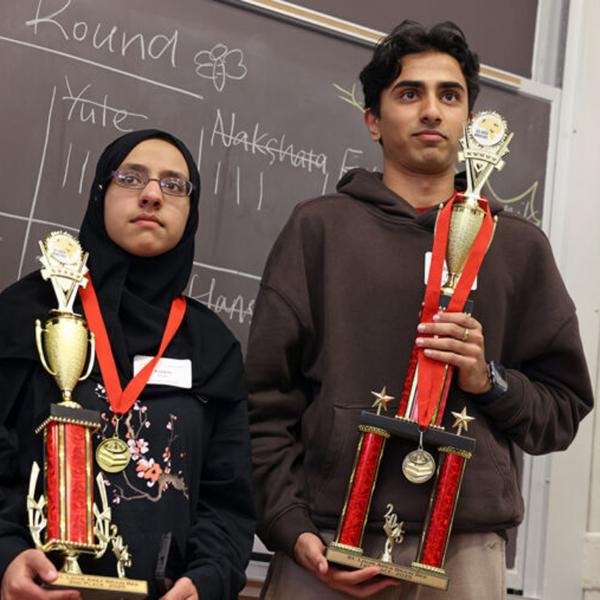Patrizia d’Ettorre is a Professor in Ethology at Université Paris 13. She grew up in Italy, where she received her PhD in Animal Behaviour at the University of Parma. She completed two postdocs in France and Germany before landing at University of Copenhagen in Denmark as an Associate Professor in social evolution. She has been a full professor at Université Paris 13 for more than 10 years.
Patrizia’s lab studies communication among social insects, including bees and wasps, but mostly ants. She describes ant society as a closed fortress with lots of resources inside. Ants must defend the nest from competitors and parasites. In order to do this, they have to be able to recognize each other. Ants only let in members of their colony in order to protect their resources, but how do they tell a friend from a foe?
The d’Ettorre lab has contributed to the discovery that body odor plays a big role in recognition. Each ant colony has a unique scent that is composed of different concentrations of hydrocarbon compounds. These compounds help prevent desiccation and are a natural barrier to pathogens, but also serve the purpose of creating the unique scent which allows the ants of a particular colony to recognize each other. The scent composition is partly determined by genetics and partly influenced by the food available to the ants along with other environmental factors. Patrizia has studied ants in the wild, but now has colonies of up to 1000 workers each in her lab in Paris.
Patrizia came to WashU after meeting Joan Strassmann and David Queller at several conferences and workshops over the years. The Strassmann Queller Lab studies social evolution in amoebae and wasps. They told her about the Clark Way Harrison Visiting Professorship opportunity and she wanted to get to know the community in this area in her field of research. Over the next 6 months, she will be teaching with Joan and Dave and working on papers about recognition among social organisms. She looks forward to more collaboration in the dynamic welcoming environment of the biology department.






